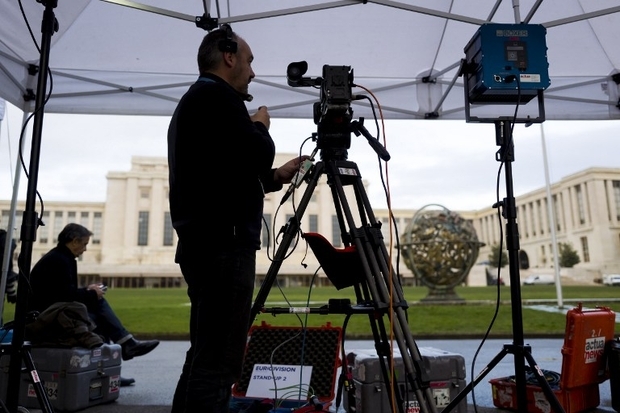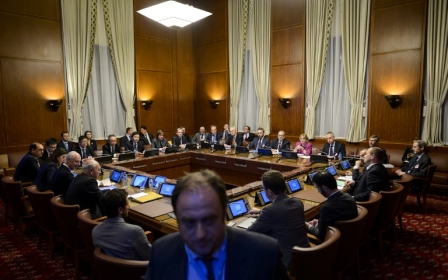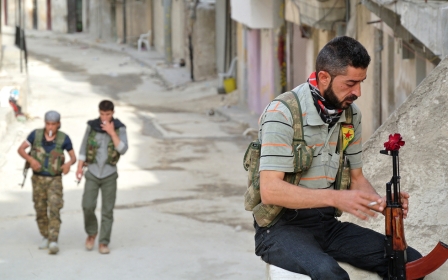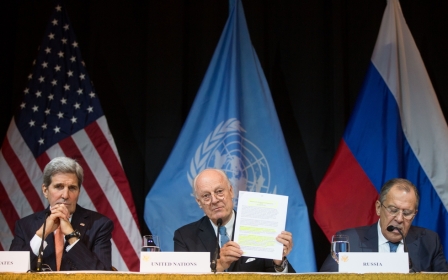Opposition negotiators a no-show at Syria 'peace talks'

A UN-led push to chart a way out of Syria's tangled civil war got off to a shaky start Friday, with only representatives of Bashar al-Assad's government attending the first day of supposed peace talks in Switzerland.
The main umbrella body representing the myriad opposition and rebel groups in the five-year-old conflict were refusing to take part at the start of what are meant to be six months of intra-Syrian negotiations in Geneva.
A member of this group, the High Negotiations Committee (HNC), told AFP however that a small, low-level team of three spokesmen were en route for Geneva where they might meet with UN envoy Staffan de Mistura.
"The media delegation... might meet with de Mistura, with the Americans, but the programme is not clear yet," Fuad Aliko said. "But not as negotiators."
Neither de Mistura nor Syria's UN ambassador Bashar al-Jaafari commented to reporters as they began discussions inside Geneva's Palais des Nations, the European UN headquarters.
Syria's conflict erupted in March 2011 with anti-government protests and evolved into a complex civil war that has killed more than 260,000 people.
Previous efforts at putting a stop to the violence have failed, but world powers have thrown their weight behind this round of talks, the first in two years.
Iranian President Hassan Rouhani, whose country has provided military backing for the Syrian government, on Thursday night voiced pessimism over the prospects for peace.
"It's our hope to see these negotiations succeed as quickly as possible," Rouhani said at the end of his two-day visit to France.
"But I would be surprised if they succeed very soon, because in Syria there are groups fighting the central government but also fighting each other. There is interference in the internal affairs of Syria.
"The solution should be political, but it will be difficult to arrive at a conclusion in the space of a few weeks, a few meetings. That would be too optimistic, because the Syrian question is too complicated."
Stay informed with MEE's newsletters
Sign up to get the latest alerts, insights and analysis, starting with Turkey Unpacked
Middle East Eye delivers independent and unrivalled coverage and analysis of the Middle East, North Africa and beyond. To learn more about republishing this content and the associated fees, please fill out this form. More about MEE can be found here.




